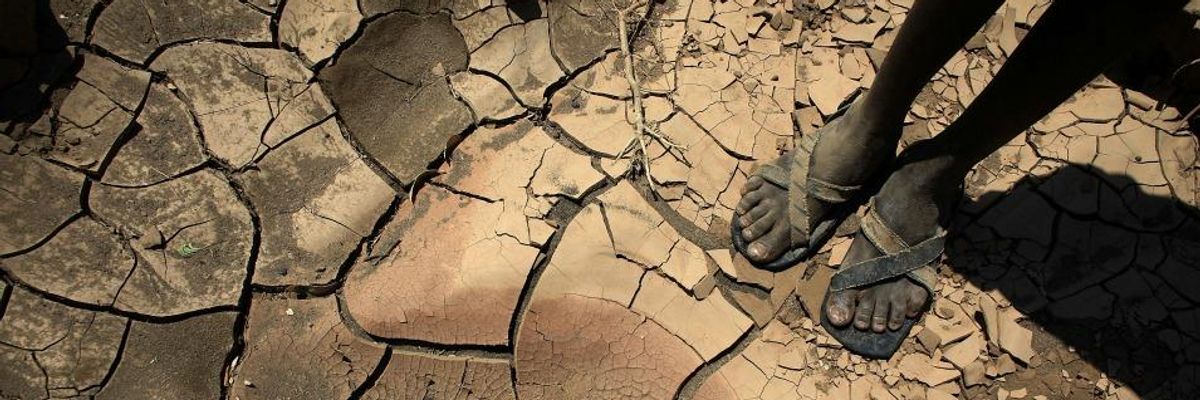Extreme weather events, driven by the climate crisis, are a key factor in the rising global food crisis of recent years--with the number of people now affected by inadequate food and water prompting fears that the past decade's gains have been reversed.
A new study by the U.N. Food and Agriculture Organization (FAO), the International Fund for Agricultural Development, UNICEF, the World Food Program, and the World Health Organization find that 821 million people worldwide--one in nine--lack sufficient food and water. Malnutrition and food shortages worsened in most of Africa and in large swaths of South America in the last year.
"Hunger is significantly worse in countries with agricultural systems that are highly sensitive to rainfall and temperature variability and severe drought, and where the livelihood of a high proportion of the population depends on agriculture," reads the study.
The report, entitled "The State of Food Security and Nutrition in the World 2018," points to "climate shocks" including flooding, drought, and tropical storms as ones that have had the most adverse effects on food production.
Drought causes 80 percent of all damage to agriculture, with farmers in Ghana, Tanzania, and Nigeria reporting to the agencies that frequent droughts as well as heatwaves have resulted in significant crop loss.
In Asia, where more than half a billion of the world's hungry population lives, flooding is largely behind food scarcity. More than three million people in Bangladesh went without enough to eat in 2017 due to severe storms and resulting floods, while similar events combined with drought left more than 10 million hungry in Nepal, Afghanistan, and Pakistan.
The report offers a disconcerting contrast to numbers recorded in 2015, when 795 million people were found to be affected by hunger, and represents a return to levels found about a decade ago.
Food scarcity has been steadily rising worldwide since 2015, the agencies found--with this year's report showing the third year-over-year increase since then.
"It is shocking that, after a prolonged decline, this is the third consecutive year of rising hunger," Robin Willoughby, head of food and climate policy at Oxfam, told The Guardian. "The inescapable fact is that climate change is now leaving people around the world without enough to eat."
In addition to directly affecting food supplies, the study notes, the climate crisis is central to the worldwide hunger crisis because it has been shown to fuel armed conflicts and other crises which in turn leave populations with insufficient food.
The climate crisis "also exacerbate[s] other driving factors of food insecurity and malnutrition, such as conflict, economic slowdowns and poverty," wrote the agencies. "It is thus critical to investigate in more detail how climate variability and extremes can undermine the different dimensions of food security (food availability, access, utilization and stability) and nutrition."
As Cindy Holleman, a senior economist for FAO, said Tuesday, in addition to combating the climate crisis itself by shifting away from fossil fuel-based energy sources, governments must make strides to increase their "climate resilience."
"We know what needs to be done to solve this problem," Holleman said. "What we're talking about is climate resilience and scaling up programs and policies that support climate resilience. The main this it that we need to act now because hunger is starting to rise."




